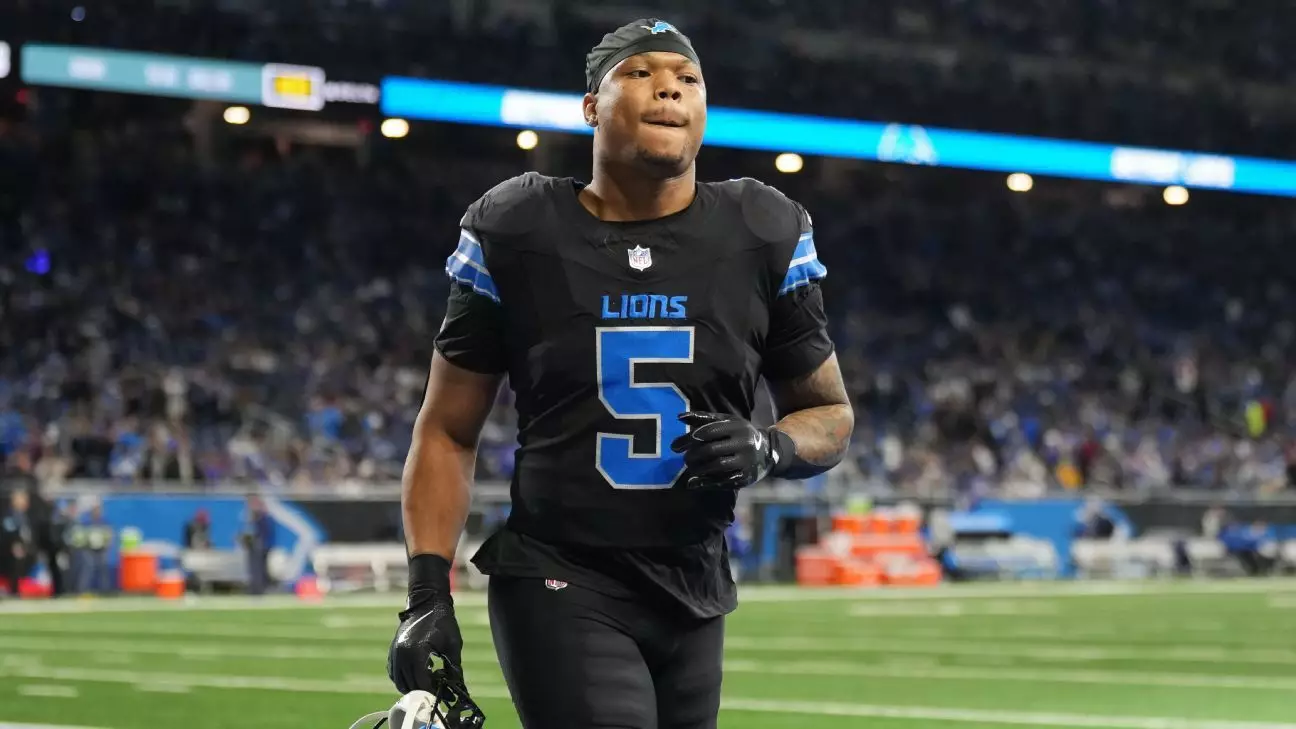In a stunning turn of events during the highly anticipated game against the Buffalo Bills, the Detroit Lions have found themselves grappling with a slew of injuries that could severely impact their postseason aspirations. Running back David Montgomery, who has been a linchpin in the team’s offense this season, will not return after suffering a sprained MCL. Head coach Dan Campbell disclosed on Monday that Montgomery may require surgery, which will sideline him for the remainder of the year. Such developments have left Lions fans—and the coaching staff—reeling as they digest the loss of one of the team’s most valuable assets.
Montgomery has been integral to the Lions’ attack, amassing 775 rushing yards and leading the squad with 12 rushing touchdowns this season. His undeniable tenacity was illustrated when he continued to play despite the injury before having it evaluated afterward. Coach Campbell lauded Montgomery as “the ultimate teammate” and “competitor,” recognizing the emotional and competitive void his absence will create as they navigate through the end of the regular season.
While Montgomery’s injury is alarming, he is not alone in the Lions’ misfortune. Defensive tackle Alim McNeill, a stalwart on the Lions’ front line, has also suffered a season-ending torn ACL. Similarly, cornerback Carlton Davis III will be undergoing surgery for a fractured jaw, and Khalil Dorsey has been sidelined with an ankle injury that likewise requires surgical intervention. These injuries come at a precarious time for Detroit’s defense, which had already been hampered by the previous loss of star defensive end Aidan Hutchinson earlier in the season.
With McNeill and Hutchinson unable to contribute, the Lions’ defensive unit is facing a critical situation, exacerbated by the fact that they brought 13 players into the game already listed on injured reserve. In the fallout of these setbacks, Campbell has spoken about the importance of holding true to the team’s core mission—persevering against the odds and honoring the contributions of those sidelined.
The impact of these injuries extends well beyond the field; it will shape the dynamics of the remaining Lions roster and test the team’s depth. Jahmyr Gibbs must now step up as the lead back, carrying the weight of more extensive responsibilities. His emergence not only reflects a shift in strategy but also presents an opportunity for growth and visibility. Similarly, younger defensive players will need to rise to the occasion as the team looks to bridge the gap left by veteran players.
Dan Campbell’s perspective on handling this adversity is notably pragmatic. He acknowledges the challenges but underscores a critical point: the NFL is unforgiving. “Nobody cares,” Campbell remarked, reminding his team that while they navigate these challenges, they can’t afford to rely on excuses. Instead, the focus must be on harnessing the potential of every player ready to take the field, creating opportunities for those who may not have seen the same level of action in the past.
Future Implications and Lessons Learned
As the Lions march toward the end of the regular season, they currently hold a commendable record of 12-2, keeping them atop the NFC playoff rankings due to their strong winning percentage. However, this impressive outcome comes at a cost as they continue to deal with critical injuries. The management of these losses will require an adaptive approach, where every player must step up, both in terms of physical performance and mental resilience.
The Detroit Lions may be facing a series of challenges that could define their season, but as they grapple with injuries to key contributors, there lies an opportunity for new talent to emerge. As history shows that championship teams often rise amid adversity, the Lions must seize this moment to forge their identity. With three games left and an eye on the playoffs, the team is committed to transforming misfortune into motivation while ensuring that their focus remains rooted in resilience and unity.


Leave a Reply